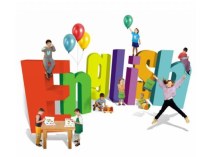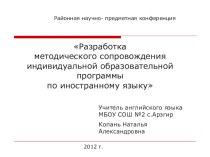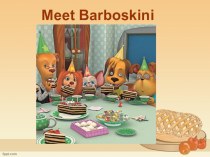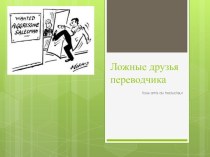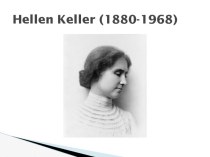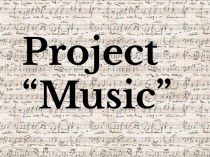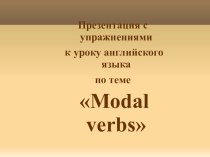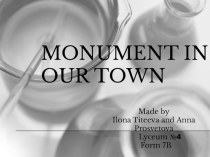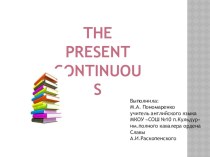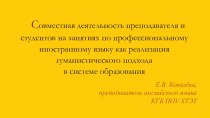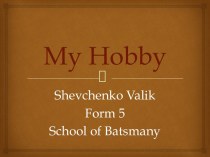- Главная
- Разное
- Бизнес и предпринимательство
- Образование
- Развлечения
- Государство
- Спорт
- Графика
- Культурология
- Еда и кулинария
- Лингвистика
- Религиоведение
- Черчение
- Физкультура
- ИЗО
- Психология
- Социология
- Английский язык
- Астрономия
- Алгебра
- Биология
- География
- Геометрия
- Детские презентации
- Информатика
- История
- Литература
- Маркетинг
- Математика
- Медицина
- Менеджмент
- Музыка
- МХК
- Немецкий язык
- ОБЖ
- Обществознание
- Окружающий мир
- Педагогика
- Русский язык
- Технология
- Физика
- Философия
- Химия
- Шаблоны, картинки для презентаций
- Экология
- Экономика
- Юриспруденция
Что такое findslide.org?
FindSlide.org - это сайт презентаций, докладов, шаблонов в формате PowerPoint.
Обратная связь
Email: Нажмите что бы посмотреть
Презентация на тему по английскому языку на тему Методика работы с текстом для аудирования. Аудирование как средство обучения устной речи.
Содержание
- 2. Понятие аудирования включает процесс восприятия и понимания
- 3. Этапы работы с аудитивным текстомPRE-listening. подготавливаем ученика
- 4. PRE-listeningWhat did you have for breakfast today?I had ……. for breakfast today.
- 5. Match the words with the pictures: a
- 6. WHILE-listening Listen to the text and guess
- 7. POST-listeningListen to the text “An Expensive Breakfast”
- 8. Choose the correct answer: 1) … was
- 9. Finish the following sentences: 1) The king
- 10. Make a dialogue:Imagine that you are the
- 11. Скачать презентацию
- 12. Похожие презентации
Понятие аудирования включает процесс восприятия и понимания звучащей речи. Обучение аудированию уделяется большое внимание, так как оно составляет основу общения, с него начинается овладение коммуникацией.
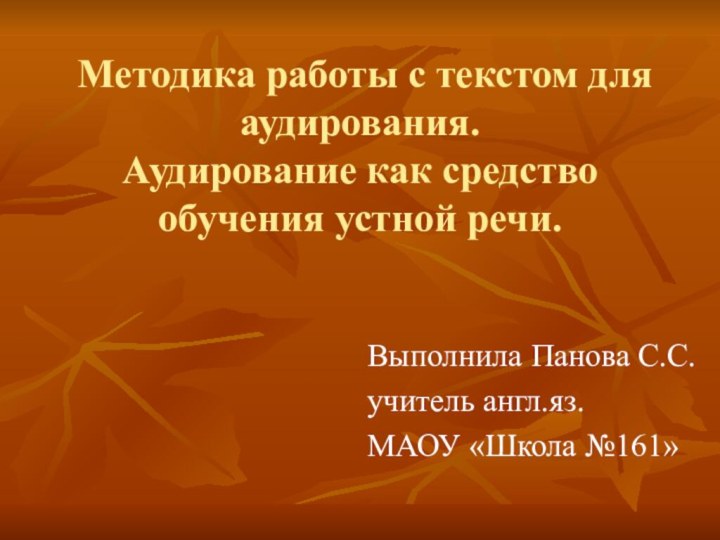

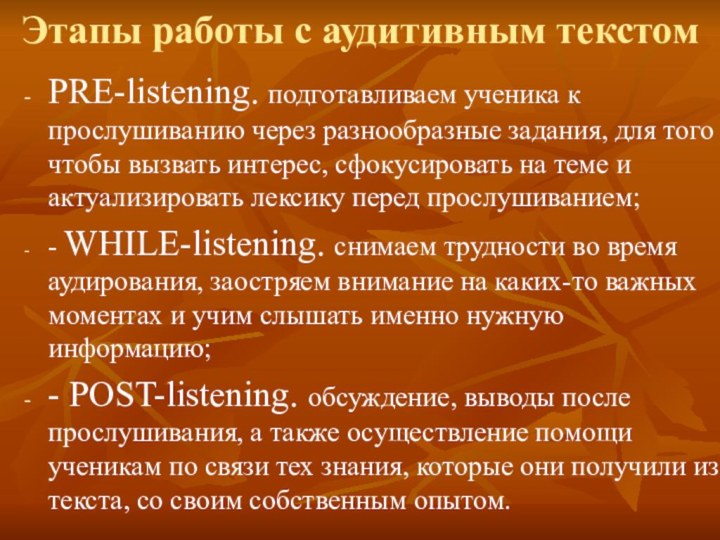
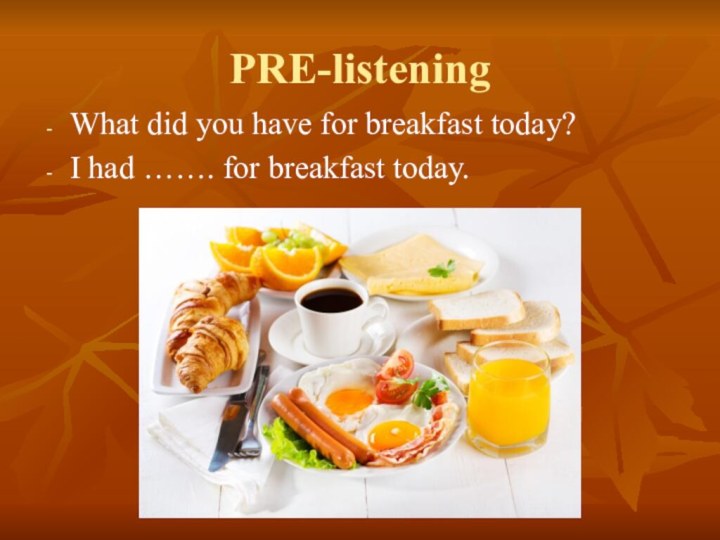



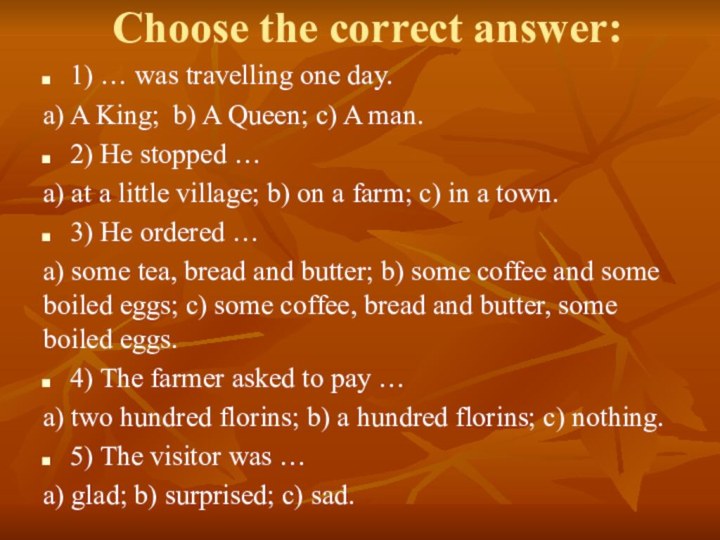

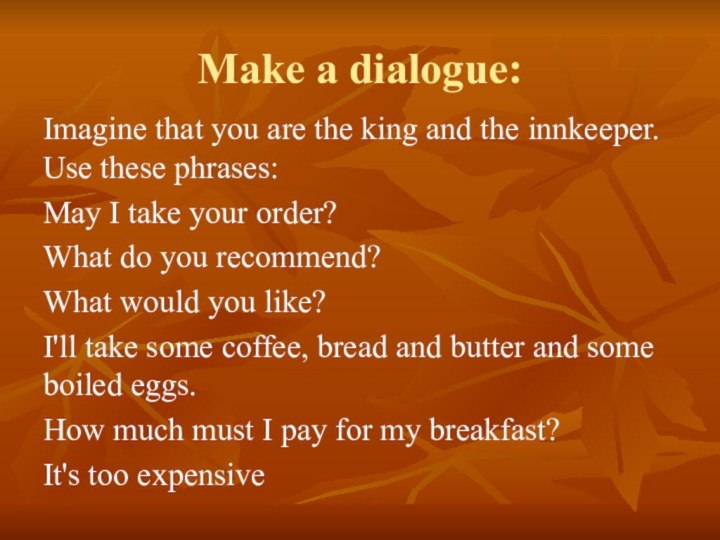
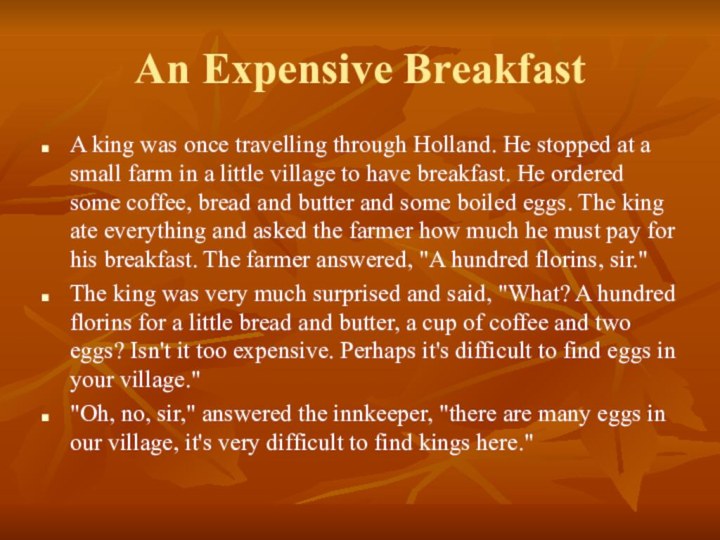
Слайд 3
Этапы работы с аудитивным текстом
PRE-listening. подготавливаем ученика к
прослушиванию через разнообразные задания, для того чтобы вызвать интерес,
сфокусировать на теме и актуализировать лексику перед прослушиванием;- WHILE-listening. снимаем трудности во время аудирования, заостряем внимание на каких-то важных моментах и учим слышать именно нужную информацию;
- POST-listening. обсуждение, выводы после прослушивания, а также осуществление помощи ученикам по связи тех знания, которые они получили из текста, со своим собственным опытом.
Слайд 7
POST-listening
Listen to the text “An Expensive Breakfast” and
decide whether the information in the sentences is true
or false. .1. The king ordered some coffee, bread and butter and some raw eggs.
2. The king thought that he had to pay so much because it was difficult to find eggs in innkeeper’s village.
3. But the farmer said that it was because it was very difficult to find bread in his village.
4. The king had to pay a hundred dollars for his breakfast.
5. The king stopped at a small farm in a little village to have breakfast.
Слайд 8
Choose the correct answer:
1) … was travelling one
day.
a) A King; b) A Queen; c) A man.
2)
He stopped …a) at a little village; b) on a farm; c) in a town.
3) He ordered …
a) some tea, bread and butter; b) some coffee and some boiled eggs; c) some coffee, bread and butter, some boiled eggs.
4) The farmer asked to pay …
a) two hundred florins; b) a hundred florins; c) nothing.
5) The visitor was …
a) glad; b) surprised; c) sad.
Слайд 9
Finish the following sentences:
1) The king ordered …
2)
The king thought that he had to pay so
much because …3) But the farmer said that it was because…
Слайд 10
Make a dialogue:
Imagine that you are the king
and the innkeeper. Use these phrases:
May I take your
order?What do you recommend?
What would you like?
I'll take some coffee, bread and butter and some boiled eggs.
How much must I pay for my breakfast?
It's too expensive
